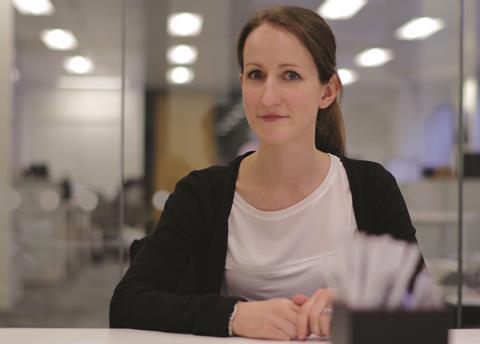No ŌĆ£kneejerk reactionsŌĆØ to investment with many firms doubtful US presidentŌĆÖs trade policy will stay the course, consultant says
Construction clients are taking a level-headed approach to Donald TrumpŌĆÖs new tariffs and are yet to make any ŌĆ£kneejerkŌĆØ reactions on investment, according to T&T Alinea.
The firmŌĆÖs research associate director Rachel Coleman said there was no signs of panic in the industry following the US presidentŌĆÖs decision to raise tariffs worldwide by a minimum of 10%, announced last week.
She added that there is a general scepticism among clients that the new tariffs will ŌĆ£stickŌĆØ for the long term, with many looking at the weeks ahead as a short or medium term period of potentially higher costs.

Stock markets have crashed across the world in response to TrumpŌĆÖs announcement of reciprocal tariffs against some of the countryŌĆÖs biggest trade partners and a global 25% tariff on all steel, aluminium and car imports. Some strategic sectors have been excluded, including refined copper, lumber and selected pharmaceuticals.
For all other goods, the UK is the least affected developed country with only the baseline 10% tariff imposed on it, although other countries are facing much more severe reciprocal rates including China, at 54%, Japan at 24% and the EU at 20%.
China has led the retaliation, imposing higher tariffs of its own on the import of US goods, and is now facing an additional 50% rate threatened by Trump in response, which would bring the total US barrier on China for certain goods to 104%.
But Coleman said construction clients were ŌĆ£largely wanting to know what the cost impact of it isŌĆØ rather than thinking about longer term strategic choices.
ŌĆ£The big message that weŌĆÖve understood is just people trying to understand it. I donŌĆÖt think anyoneŌĆÖs doing any knee jerk reactions. I think everyoneŌĆÖs learned about that over the last few years. ItŌĆÖs just trying to understand the moment,ŌĆØ she said.
In a speech on Monday Keir Starmer described TrumpŌĆÖs trade policy as ŌĆ£not a passing phaseŌĆØ, adding: ŌĆ£This is a changing and completely new world, an era where old assumptions, long taken for granted, simply no longer apply.ŌĆØ
But while Gleeds global chair Richard Steer said the UKŌĆÖs political stability and 10% baseline rate may make the country a ŌĆ£safe harbourŌĆØ for investment, he questioned the longevity of the new tariffs.
ŌĆ£Underscoring all this must be the constant concern that Donald Trump is both unpredictable and economically promiscuous,ŌĆØ he said. ŌĆ£What seems a good idea today is usurped by another opposite stance tomorrow.ŌĆØ
However, some firms have already made moves, with JCB opting to double the size of a factory under construction in Texas to 93,000 sq m.
T&T Alinea circulated a briefing note to staff at its London office on Monday morning warning the increase in uncertainty ŌĆ£will no doubt impact business confidence and force more reactive and protective business planning from global manufacturers and businessesŌĆØ.
ŌĆ£Investment decisions will undoubtedly be under review, especially from those companies most affected by the announcement, and from others until the uncertainty recedes. The news from JCB demonstrates that investment decisions may be currently up for review, and money redistributed to navigate the current period.ŌĆØ
Meanwhile, Michael Walters, group director at architect Corstorphine & Wright, suggested the exemption of some pharmaceuticals and the UKŌĆÖs lower tariff could present an ŌĆ£unexpected opportunityŌĆØ for the life sciences sector. ŌĆØWith exempt or reduced tariffs this would mean UK-based pharmaceutical companies can more effectively scale their businesses internationally, enhancing the UKŌĆÖs position as a global hub for life sciences innovation,ŌĆØ he said.
On Monday, Starmer described the tariffs as a ŌĆ£huge challenge to our futureŌĆØ but promised to back business ŌĆ£to the hiltŌĆØ. He also outlined plans to boost the life sciences sector by speeding up clinical trials and investing ┬Ż600m with the Wellcome Trust to create a new Health Data Research Service.
The service, which will start from the end of next year, aims to make it easier for medical researchers to access data by bringing it together into one easy-to-access location.



























No comments yet